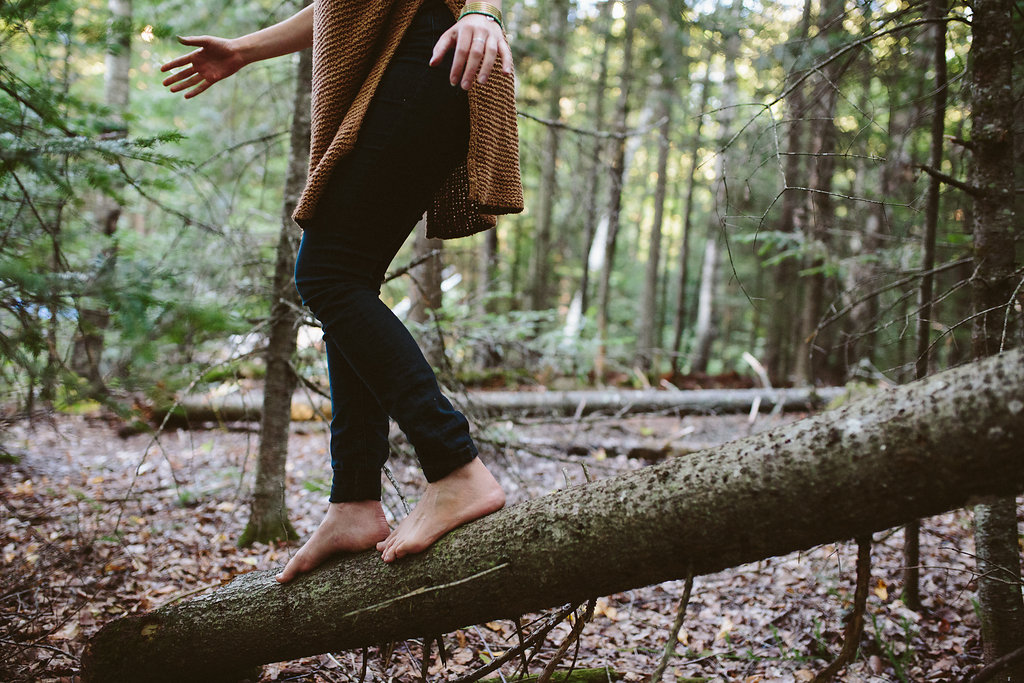Your nature routine is as important as your workout routine.
A ‘balanced lifestyle’ for physical health
I just had my annual physical. Fortunately, I have a (mostly) clean bill of health— but I didn’t make it out of there without being asked that dreaded question. You know the one: “Are you living a balanced lifestyle, Jon?”“Balanced lifestyle” — a less judgmental way to ask in quick succession:
“Are you getting enough sleep?”
“Are you eating healthy food?
“Are you exercising?”
I call it that dreaded question because it seems like the three challenges packed inside of it are weighing on all of us. But, as my doctor reminds me each year, it’s called a balanced lifestyle for a reason:
“It’s okay to want to fit a lot of things into a day, but you have to balance that with real rest.”
“It’s okay to want to eat sweets and carbs sometimes, but you have to balance that with healthy foods.”
“It’s okay to lounge around or sit at your desk some of the time, but you have to balance that with activity.”
Fortunately, there’s a whole set of concepts and tools to help us achieve this type of balance: for sleep, the idea of getting a good ‘8 hours’; for nutrition, various diet ideas and healthy food options; and for exercise, yoga and the gym.

A ‘balanced lifestyle’ for mental health
Recently, public health experts have started fuzzing the line between physical and mental health, speaking out on the importance of day-to-day practices to serve our mind — and its sanity — as well as our body and its health.
We should follow their lead and incorporate mental health into our commonsense understanding of what a “balanced lifestyle” is.
First, for those of us who are always connected to technology, we should balance this with time for disconnection. We are spending 8 hours a day consuming media and its hurting our mental processing. Take memory for example. Digitally overloaded Millennials are having more senior moments than seniors are: those under 30 are more likely than those over the age of 55 to forget what day it is or where they put their keys.
Second, for those of us who are always socializing — professionally or just for fun — we should balance this with time for quiet and solitude. Solitude provides a break from self-consciousness and social performance, giving us space to remember and discover our deeper values and more authentic selves.
Third, for thus of us in the hustle and bustle of the city, we should balance this with time for nature. Nature‘s benefits are almost comically expansive: it helps mitigate ADHD, decrease stress, recover from surgery faster, short circuit rumination, enhance memory, and improve our relationships. It’s no wonder that Japanese doctors have started prescribing patients take “forest baths”: therapeutic walks in the woods with proven benefits for our health.
If we started incorporating these three challenges — finding time for disconnection, solitude, and nature — into our shared conception of a “balanced lifestyle,” my hope is that more tools and concepts will arise to help us achieve those goals. Just like how “eight hours of sleep” became a cultural idea, perhaps “digital sabbaths” — one day a week without technology — will, too. Just like how certain restaurants started branding themselves as healthy and nutritious, perhaps certain companies will start branding themselves as solitude-friendly. And in the same way people have become maniacal about going to the gym, perhaps we will become maniacal about going to the woods.
I have another year before my doc asks me that dreaded question again. Wish me luck in better achieving that balance: physically and mentally. I wish you the same!
Originally published on Thrive Global.
